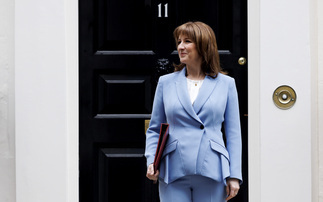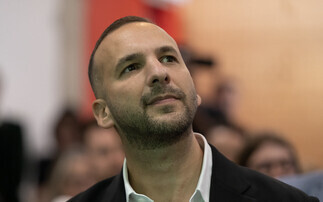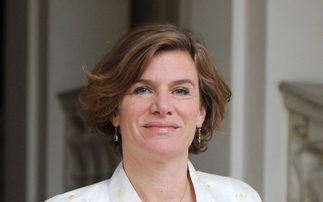What do the poorest nations want from a Paris deal? Giza Gaspar Martins, chair of the Least Developed Countries group, outlines five key priorities for a lasting deal
As the long-running negotiations to deliver a new international climate change agreement at this year's Paris Summit enter their final straight it is increasingly clear what many of the main players want from the talks.
The world's three biggest economies, the US, China and EU, have all signed up to plans for a new network of national climate action plans in the hopes a system of voluntary targets can break the deadlock that has previously hampered the talks. Growing numbers of businesses want to see an ambitious new emissions reduction deal the provides them with clear, long term investment signals. And green campaigners want countries to come up with a credible plan to bridge the gap between the emissions reductions they have pledged to deliver and what is needed to avoid dangerous climate change.
But what of those nations that face the most severe climate impacts, the world's poorest countries many of which are already seeing their economies undermined by climate change? What do they want to see from Paris and what will it take to get them to back any new agreement?
The Least Developed Countries group (LDCs), which represents the world's 48 poorest nations at the UNFCCC negotiations, plays a key role in ensuring the voices of the most vulnerable nations are heard at the negotiations. And Angola's Giza Gaspar Martins, the group's chair, was in London this week to explain what a durable deal would look like for these countries:
1. An ambitious goal
The LDCs are calling for a target to limit average global temperature rise to just 1.5C. They argue that a 2C rise in global temperatures, which is generally supported by developed countries, poses an unacceptable risk to their states, many of which are low-lying or already facing severe climate impacts.
Gaspar Martins acknowledged 1.5C is an ambitious goal, telling journalists that it will require a "tremendous" effort on the part of all countries. However, he said it would send a "clear signal" to societies, businesses, and governments that the world is setting a clear pathway to decarbonisation.
He also believes that the climate action plans countries are currently putting forward, known as Intended Nationally Determined Contributions (INDCs), will become more ambitious over time. "I think that the first iteration of INDCs will be a confidence-building exercise," he said. Later, parties will start to exert peer pressure on one another to do more in terms of carbon reductions, he added.
2. Regular revision periods
It is generally agreed any Paris agreement will act as a starting point for climate action, with regular revision periods allowing countries to 'ratchet up' their climate ambitions at a later date. The LDCs, along with many key figures including Lord Stern and the We Mean Business coalition of businesses working towards a low-carbon economy, support a five year revision period.
Gaspar Martins believes a five-year review cycle would allow countries to take "corrective action" where necessary to set them back on target if their initial emissions targets prove to be insufficiently ambitious. Within that process, he said there should be two key principles: firstly, that there should be no "backsliding" - where countries lower their ambitions compared to previous agreed targets - and similarly, that there should be "progression", with targets improved regularly to raise global ambition.
3. Robust enforcement mechanisms
The LDCs are advocating for a "robust enforcement mechanism" comparable to the system used in the Kyoto protocol. However, compliance measures are politically tricky waters to navigate, and the compliance section is one of the more contentious elements of the draft text.
Gaspar Martins is keen to see negotiations move forward to hammer out a clear agreement on what happens if targets are not met. He said the group is "very interested" in identifying "what measures are we willing to enact collectively to ensure that there is also a little bit of a stick" countries face when implementing reduction plans.
4. Clarity on climate finance
"Climate finance has been a source of some tension between donors and receiving countries," Gaspar Martins admits with admirable understatement. "Donors always think they give and recipients always think they have not received."
The LDCs are pushing for countries to provide more details on how developed countries intend to meet their pledge to provide $100bn a year of climate finance by 2020, designed to help poorer countries accelerate low-carbon development and cope with some of the impacts of climate change. First announced in 2009, there is still no clear road map detailing how the money will be raised and distributed, and the issue is a major sticking point in negotiations. French president Francois Hollande has even remarked that the talks could fail altogether over the highly contentious topic.
Post 2020, the LDCs would also like to have details of climate finance commitments embedded in the INDC process.
In addition, Gaspar Martins highlighted how climate finance pledges are not just coming from developed countries, pointing to how emerging economic powerhouses are starting to make funding commitments. "There's an increasing number of developing countries that have been playing a role, either in capacity building, or through South-South co-operation, in assisting the least capable," he said.
5. Agreement on loss and damage
Loss and damage is another contentious issue on the table at Paris. For a deal to be "durable and dynamic", Gaspar Martins insisted it needs to consider all potential future scenarios. "Therefore it is important for us that a Paris deal will incorporate something for us that we think will be a necessary response in some instances to climate change," he said. "These are real consequences that we expect will be upon us during the validity of this agreement," he added.
Threats include not just rising sea levels that could wipe out territories within low-lying states, but also loss of arable land and prolonged periods of drought, he said.
"Positive vibes" from the latest round of talks in Bonn hint at a potential breakthrough on the topic, as early signs suggest developed countries are beginning to move their position to include some form of loss and damage clause into a new deal.
There is also a consensus emerging among developing countries around loss and damage, Gaspar Martins said. "The Bonn session was good in the sense that it was the first time in a very long time that all members of the G77 and China now have a common position on loss and damage," he said.
However, there is still more work to be done on understanding how systems such as proposed risk transfer schemes could work and how they can be deployed at scale. Part of the problem, Gaspar Martins says, is that many small island states "simply don't have the population or financial muscle in order to engage in risk transfer schemes".
Meanwhile, many observers remain sceptical industrialised nations will ever back loss and damage mechanisms that some fear could leave them open to uncapped claims for compensation and reparation.
This article is part of BusinessGreen's Road to Paris hub, hosted in association with PwC










